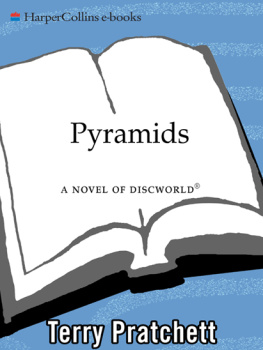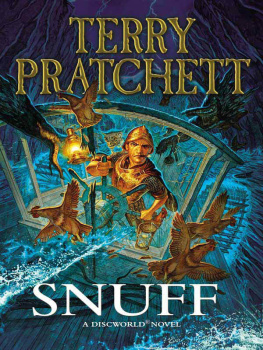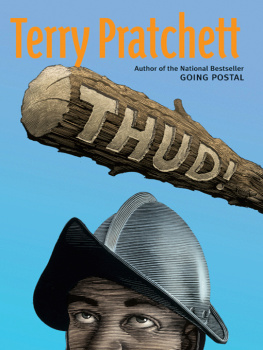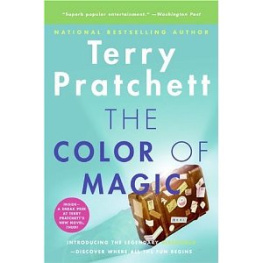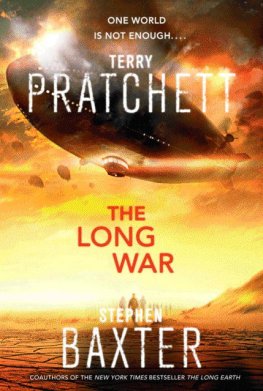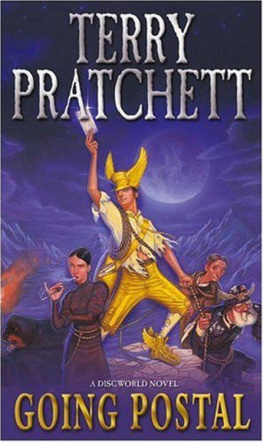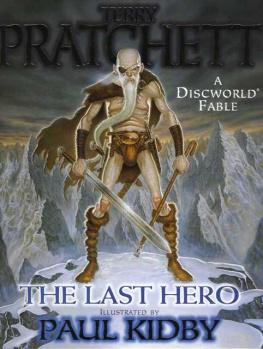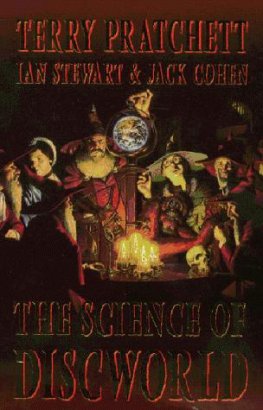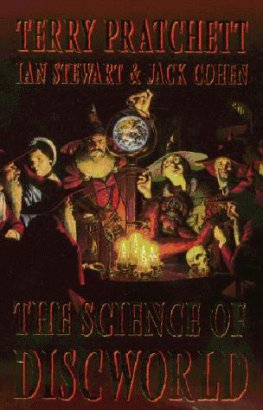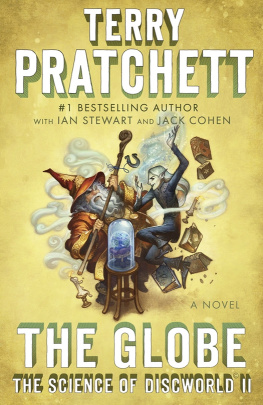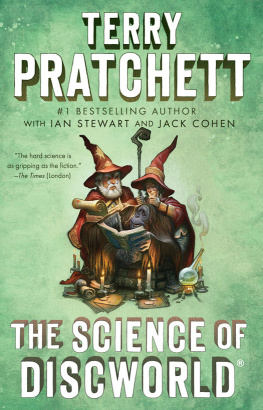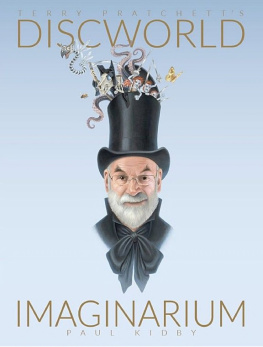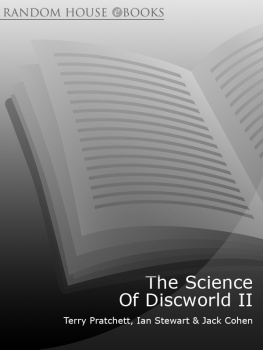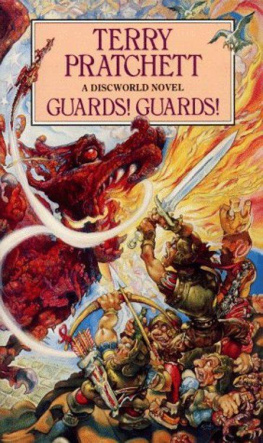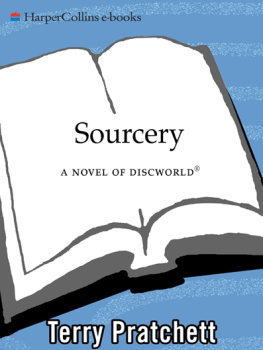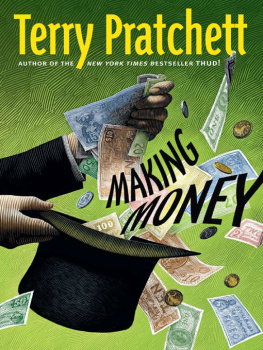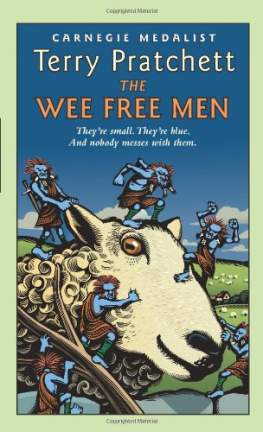Terry Pratchett - Pyramids (Discworld #7)
Here you can read online Terry Pratchett - Pyramids (Discworld #7) full text of the book (entire story) in english for free. Download pdf and epub, get meaning, cover and reviews about this ebook. genre: Detective and thriller. Description of the work, (preface) as well as reviews are available. Best literature library LitArk.com created for fans of good reading and offers a wide selection of genres:
Romance novel
Science fiction
Adventure
Detective
Science
History
Home and family
Prose
Art
Politics
Computer
Non-fiction
Religion
Business
Children
Humor
Choose a favorite category and find really read worthwhile books. Enjoy immersion in the world of imagination, feel the emotions of the characters or learn something new for yourself, make an fascinating discovery.
- Book:Pyramids (Discworld #7)
- Author:
- Genre:
- Rating:5 / 5
- Favourites:Add to favourites
- Your mark:
- 100
- 1
- 2
- 3
- 4
- 5
Pyramids (Discworld #7): summary, description and annotation
We offer to read an annotation, description, summary or preface (depends on what the author of the book "Pyramids (Discworld #7)" wrote himself). If you haven't found the necessary information about the book — write in the comments, we will try to find it.
Pyramids (Discworld #7) — read online for free the complete book (whole text) full work
Below is the text of the book, divided by pages. System saving the place of the last page read, allows you to conveniently read the book "Pyramids (Discworld #7)" online for free, without having to search again every time where you left off. Put a bookmark, and you can go to the page where you finished reading at any time.
Font size:
Interval:
Bookmark:
A Novel of Discword

PART I
The Book of Going Forth
Nothing but stars, scattered across the blackness as though the Creator had smashed the windscreen of his car and hadnt bothered to stop to sweep up the pieces.
This is the gulf between universes, the chill deeps of space that contain nothing but the occasional random molecule, a few lost comets and
but a circle of blackness shifts slightly, the eye reconsiders perspective, and what was apparently the awesome distance of interstellar wossname becomes a world under darkness, its stars the lights of what will charitably be called civilization.
For, as the world tumbles lazily, it is revealed as the Discworldflat, circular, and carried through space on the back of four elephants who stand on the back of Great Atuin, the only turtle ever to feature on the Hertzsprung-Russell Diagram, a turtle ten thousand miles long, dusted with the frost of dead comets, meteor-pocked, albedo-eyed. No one knows the reason for all this, but it is probably quantum.
Much that is weird could happen on a world on the back of a turtle like that.
Its happening already.
The stars below are campfires, out in the desert, and the lights of remote villages high in the forested mountains. Towns are smeared nebulae, cities are vast constellations; the great sprawling city of Ankh-Morpork, for example, glows like a couple of colliding galaxies.
But here, away from the great centers of population, where the Circle Sea meets the desert, there is a line of cold blue fire. Flames as chilly as the slopes of Hell roar toward the sky. Ghostly light flickers across the desert.
The pyramids in the ancient valley of the Djel are flaring their power into the night.
The energy streaming up from their paracosmic peaks may, in chapters to come, illuminate many mysteries: why tortoises hate philosophy, why too much religion is bad for goats, and what it is that handmaidens actually do .
It will certainly show what our ancestors would be thinking if they were alive today. People have often speculated about this. Would they approve of modern society, they ask, would they marvel at present-day achievements? And of course this misses a fundamental point. What our ancestors would really be thinking, if they were alive today, is: Why is it so dark in here?
In the cool of the river valley dawn the high priest Dios opened his eyes. He didnt sleep these days. He couldnt remember when he last slept. Sleep was too close to the other thing and, anyway, he didnt seem to need it. Just lying down was enoughat least, just lying down here . The fatigue poisons dwindled away, like everything else. For a while.
Long enough, anyway.
He swung his legs off the slab in the little chamber. With barely a conscious prompting from his brain his right hand grasped the snake-entwined staff of office. He paused to make another mark on the wall, pulled his robe around him and stepped smartly down the sloping passage and out into the sunlight, the words of the Invocation of the New Sun already lining up in his mind. The night was forgotten, the day was ahead. There was much careful advice and guidance to be given, and Dios existed only to serve.
Dios didnt have the oddest bedroom in the world. It was just the oddest bedroom anyone has ever walked out of.
And the sun toiled across the sky.
Many people have wondered why. Some people think a giant dung beetle pushes it. As explanations go it lacks a certain technical edge, and has the added drawback that, as certain circumstances may reveal, it is possibly correct.
It reached sundown without anything particularly unpleasant happening to it, and its dying rays chanced to shine in through a window in the city of Ankh-Morpork and gleam off a mirror.
It was a full-length mirror. All assassins had a full-length mirror in their rooms, because it would be a terrible insult to anyone to kill them when you were badly dressed.
Teppic examined himself critically. The outfit had cost him his last penny, and was heavy on the black silk. It whispered as he moved. It was pretty good.
At least the headache was going. It had nearly crippled him all day; hed been in dread of having to start the run with purple spots in front of his eyes.
He sighed and opened the black box and took out his rings and slipped them on. Another box held a set of knives of Klatchian steel, their blades darkened with lamp black. Various cunning and intricate devices were taken from velvet bags and dropped into pockets. A couple of long-bladed throwing tlingas were slipped into their sheaths inside his boots. A thin silk line and folding grapnel were wound around his waist, over the chain-mail shirt. A blowpipe was attached to its leather thong and dropped down his back under his cloak; Teppic pocketed a slim tin container with an assortment of darts, their tips corked and their stems braille-coded for ease of selection in the dark.
He winced, checked the blade of his rapier and slung the baldric over his right shoulder, to balance the bag of lead slingshot ammunition. As an after-thought he opened his sock drawer and took a pistol crossbow, a flask of oil, a roll of lockpicks and, after some consideration, a punch dagger, a bag of assorted caltraps and a set of brass knuckles.
Teppic picked up his hat and checked its lining for the coil of cheesewire. He placed it on his head at a jaunty angle, took a last satisfied look at himself in the mirror, turned on his heel and, very slowly, fell over.
It was high summer in Ankh-Morpork. In fact it was more than high. It was stinking.
The great river was reduced to a lava-like ooze between Ankh, the city with the better address, and Morpork on the opposite bank. Morpork was not a good address. Morpork was twinned with a tar pit. There was not a lot that could be done to make Morpork a worse place. A direct hit by a meteorite, for example, would count as gentrification.
Most of the river bed was a honeycomb crust of cracked mud. Currently the sun appeared to be a big copper gong nailed to the sky. The heat that had dried up the river fried the city by day and baked it by night, curling ancient timbers, turning the traditional slurry of the streets into a drifting, choking ocher dust.
It wasnt Ankh-Morporks proper weather. It was by inclination a city of mists and drips, of slithers and chills. It sat panting on the crisping plains like a toad on a firebrick. And even now, around midnight, the heat was stifling, wrapping the streets like scorched velvet, searing the air and squeezing all the breath out of it.
High in the north face of the Assassins Guildhouse there was a click as a window was pushed open.
Teppic, who had with considerable reluctance divested himself of some of the heavier of his weapons, took a deep draft of the hot, dead air.
This was it .
This was the night .
They said you had one chance in two unless you drew old Mericet as examiner, in which case you might as well cut your throat right at the start.
Teppic had Mericet for Strategy and Poison Theory every Thursday afternoon, and didnt get along with him. The dormitories buzzed with rumors about Mericet, the number of kills, the astonishing techniqueHed broken all the records in his time. They said hed even killed the Patrician of Ankh-Morpork. Not the present one, that is. One of the dead ones.
Maybe it would be Nivor, who was fat and jolly and liked his food and did Traps and Deadfalls on Tuesdays. Teppic was good at traps, and got on well with the master. Or it could be the Kompt de Yoyo, who did Modern Languages and Music. Teppic was gifted at neither, but the Kompt was a keen edificeer and liked boys who shared his love of dangling by one hand high above the city streets.
Font size:
Interval:
Bookmark:
Similar books «Pyramids (Discworld #7)»
Look at similar books to Pyramids (Discworld #7). We have selected literature similar in name and meaning in the hope of providing readers with more options to find new, interesting, not yet read works.
Discussion, reviews of the book Pyramids (Discworld #7) and just readers' own opinions. Leave your comments, write what you think about the work, its meaning or the main characters. Specify what exactly you liked and what you didn't like, and why you think so.

